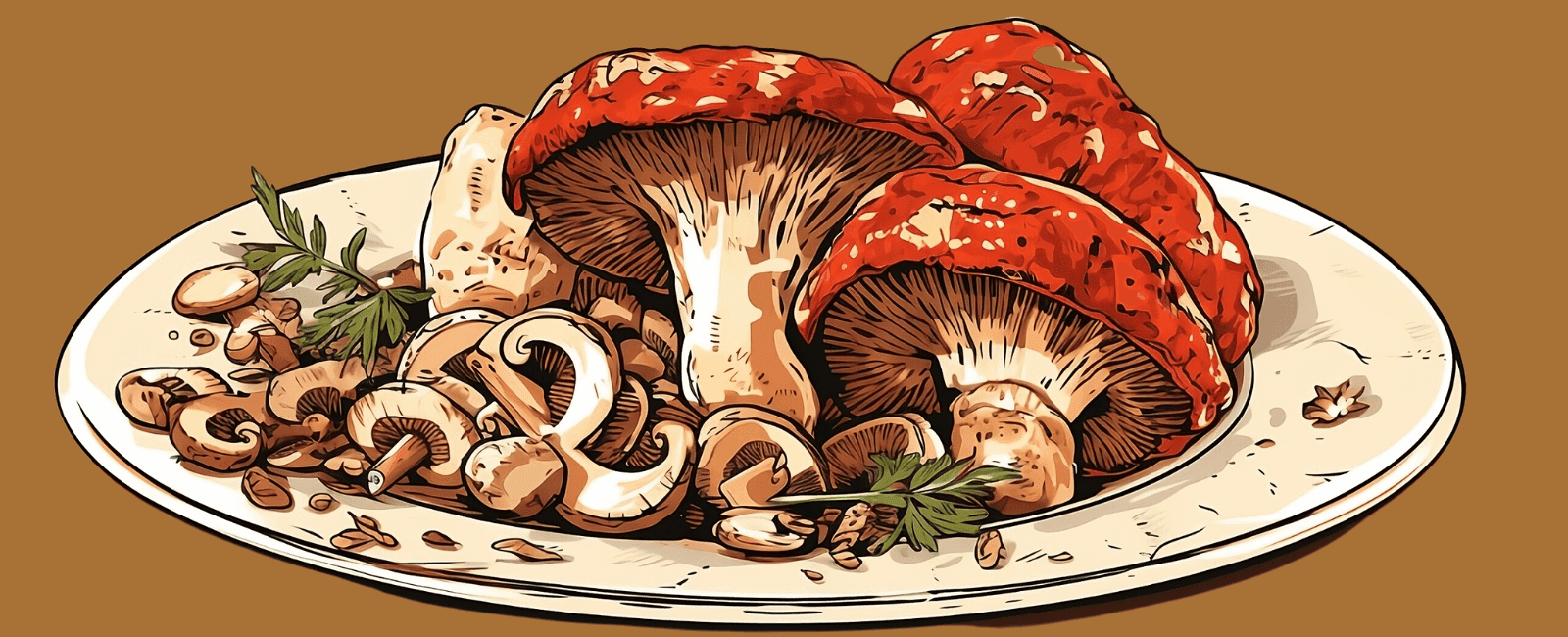

Mushrooms are a delicious part of any dish and are packed with health benefits, but researchers from the Department of Psychological Medicine and Department of Biochemistry at the National University of Singapore (NUS) have found yet another reason to add more fungi to your daily diet. The six-year study concluded that seniors who include more than two standard portions of mushrooms in their diet every week may experience a 50 percent reduced likelihood of developing mild cognitive impairment (MCI).
What is mild cognitive impairment?
As we get older, the brain experiences changes in function and structure. Older adults may experience a decline in processing speeds, short-term memory loss, and executive function. Though this is a natural part of the aging process, some individuals may face more severe symptoms of cognitive function decline. Unlike severe cognitive health problems like dementia, MCI can cause individuals to go through more cognitive decline than other healthy adults in their age group. Some risk factors for MCI include genetic factors, cardiovascular health, smoking, alcohol consumption, poor dietary habits, sedentary lifestyles, sleep disorders, and lack of intellectually stimulating activities. Since MCI is an age-related condition, people above the age of 65 are most likely to experience changes in their cognitive performance.
What the study found
The study, published in the Journal of Alzheimer’s Disease, collected and examined the data of over 600 Chinese seniors over 60 years old from the Singaporean Diet and Healthy Aging (DaHA) study. DaHA is a community-based study aimed at examining how diet and nutrition impact cognitive, emotional, and physical health among elderly people living in Singapore. The first part of the study lasted from 2011 to 2017, where they asked over a thousand elders about their diet and demographics, with baseline information about their cognitive function and health. The study also collected biomarkers to study the participant’s oxidative stress, inflammation, and genetic information (1).
By examining the results of the DaHA study, researchers found that individuals who consumed mushrooms more often (at least two portions per week) had a lower risk of mild cognitive impairment compared to those who did not eat mushrooms as regularly. The results also found that even one smaller portion a week could still decrease the chances of developing a decline in cognitive abilities. As defined by the study, a “portion” is approximately 3/4 cup of cooked mushrooms (around 150 grams). The association remained consistent despite factors like age, gender, social activities, education, physical activities, and health conditions.
“This correlation is surprising and encouraging,” said Assistant Professor Lei Feng.“It seems that a commonly available single ingredient could have a dramatic effect on cognitive decline.”
How does eating mushrooms reduce the risk of cognitive decline?
The study noted six of Singapore’s most commonly consumed mushrooms: golden, oyster, shiitake, white button mushrooms, dried, and canned mushrooms. Even though the study focused on these varieties, the researchers believe that other kinds of mushrooms may also have beneficial effects on cognitive health. Mushrooms may reduce MCI risk due to the presence of a compound found in all species of mushrooms called ergothioneine (ET).
ET is a potent and unique antioxidant amino acid with anti-inflammatory properties. Although the human body cannot synthesize ET on its own, it can be acquired through dietary sources, primarily mushrooms. A previous study by the research team found that elderly participants with MCI had lower levels of ET in their blood compared to those without degrading cognitive function. This leads them to believe that ET deficiency could lead to higher chances of developing MCI, supporting their conclusion that regular mushroom intake decreases neurodegeneration (3).
There are several other bioactive compounds in mushrooms that may be responsible for reducing MCI, such as erinacines and hericenones (found in lion’s mane mushrooms), as well as scabronines and dictyophorines. These compounds can prevent cognitive decline by stopping the production of proteins linked to neurodegenerative diseases like beta-amyloid and phosphorylated tau. It can also control the over-production of an enzyme called acetylcholinesterase, which can break down certain neurotransmitters too quickly if there are too high concentrations of it in the brain.
Future research
The researchers of the study plan to look more into ET and its effects on brain health. Feng and the research team hope to conduct more studies on other foods and dietary factors that could reduce brain aging and other age-related conditions. They might even conduct a randomized controlled trial with a pure extraction of ET along with other plant-based phytonutrients like L-theanine and catechins found in green tea leaves to see how they impact neurodegeneration. Though the results of the study are not 100% certain, the strong link between mushroom consumption and better brain health should be all the proof you need to add more tasty mushrooms into all of your meals.
References
- Feng, Lei, Irwin Kee-Mun Cheah, Maisie Mei-Xi Ng, Jialiang Li, Sue Mei Chan, Su Lin Lim, Rathi Mahendran, Ee-Heok Kua, and Barry Halliwell. 2019. “The Association between Mushroom Consumption and Mild Cognitive Impairment: A Community-Based Cross-Sectional Study in Singapore.” Edited by Jin-Tai Yu. Journal of Alzheimer’s Disease 68 (1): 197–203. https://doi.org/10.3233/jad-180959.
- Yu, Rongjun, Ye Sun, Kaisy Xinhong Ye, Qiushi Feng, Su Lin Lim, Rathi Mahendran, Irwin Kee-Mun Cheah, et al. 2020. “Cohort Profile: The Diet and Healthy Aging (DaHA) Study in Singapore.” Aging 12 (23): 23889–99. https://doi.org/10.18632/aging.104051.
- Wu, Liu-Yun, Cheuk Ni Kan, Irwin K. Cheah, Joyce Ruifen Chong, Xin Xu, Henri Vrooman, Saima Hilal, et al. 2022. “Low Plasma Ergothioneine Predicts Cognitive and Functional Decline in an Elderly Cohort Attending Memory Clinics.” Antioxidants 11 (9): 1717. https://doi.org/10.3390/antiox11091717.


